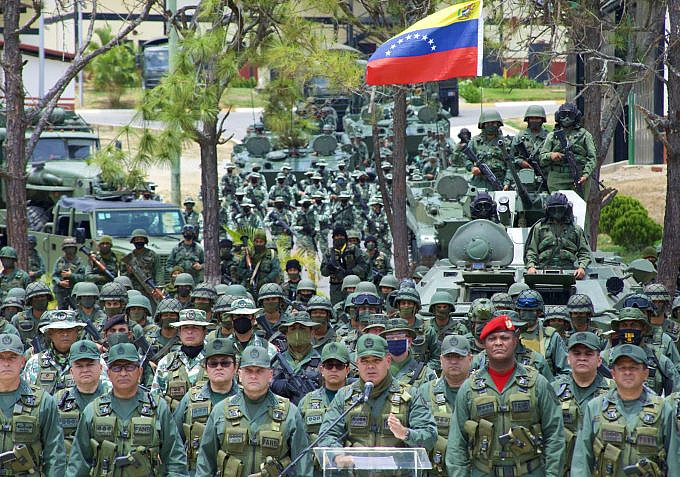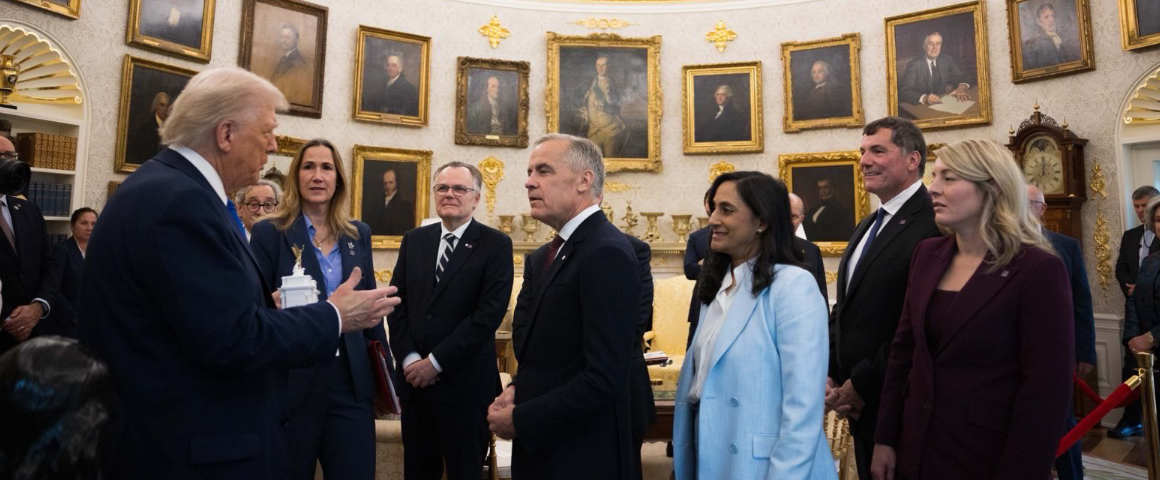Early in the morning on May 3, Venezuela witnessed an attempted raid on the central coast, by armed mercenary forces in speedboats, just a few kilometres from the capital city of Caracas.
Just a couple of hours later, while the defensive operation was still underway, Venezuela’s Minister of Interior Nestor Reverol stated, “A group of terrorist mercenaries attempted a maritime invasion, entering Venezuela with speedboats via the coast of La Guaira. Their aim was to assassinate leaders of the Bolivarian Revolution and carry out a coup.” The suggestion that the raid – already a grave act of aggression – had such menacing objectives was not farfetched, given past attempts to overthrow the Maduro government, that have included assassination attempts.
Venezuelan Minister of Defense Vladimir Padrino, in his official communiqué, injected inspiring words. “The Bolivarian National Armed Force categorically rejects these acts of irrational violence, before which we have always been victorious in defense of the Homeland, unfailingly clinging to the Constitution.”
Diosdado Cabello, president of the National Constituent Assembly and vice-president of the governing party PSUV (United Socialist Party of Venezuela), said the initial defensive action that ended “with an unfortunate balance of eight deceased, two detained people who were there; a lot of significant weapons, in addition to vehicles that they had ready to carry out actions directly on institutions and authorities.”
Cabello also warned of more possible raids and launched a call for the general population to be watchful for any suspicious or irregular activity, particularly along the coast. Consequently, more armed mercenaries were apprehended the following day, thanks to the quick reporting by fishers in the contiguous coastal area of Aragua State.
Serious questions need to be asked about the coordination of this ongoing coup attempt, the coup plotters involved, and the expected outcome were the coup to succeed.
Let’s put the US government to the side for a moment. We know about its longstanding goal for regime change. We also know that President Trump has denied any US involvement in the raid – a denial that was to be expected but not to be believed.
Instead, we will focus on some of the implications of this raid that arrive from three sources: self-appointed president Juan Guaidó and two videos with declarations from key players.
In a tweet on May 3, Guaidó dismissed the mercenary attack as a “false flag” by the Maduro government to hide social problems. However, a day later he changed his tune in a video interview, suggesting that the “dictatorship” had infiltrated the armed group. This suggests that Guaidó was not aware of the upcoming incursion on Venezuela.
Further evidence that he was not part of the planning can be inferred from a video in which former Venezuelan National Guard Javier Nieto Quintero appears next to former US Green Beret Jordan Goudreau. Nieto introduces Goudreau as a member of the special forces of the US army who also runs the Florida-based company Silvercorp USA to provide services to handle “the whole spectrum of crisis situations,” and is reported to “organize a military expedition aimed at ousting Venezuelan President Nicolas Maduro.” The video announces the raid as part of an armed struggle code-named “Operation Gedeon,” and is a call to the Venezuelan military and people to join in the overthrow of the Maduro “regime.”
What is striking is that in the two-and-a-half minute video there is not one reference to Guaidó as the “legitimate interim president” of Venezuela, or an indication that the incursion intends to support his claim.
In another video, Goudreau is interviewed from an undisclosed location by Miami-based Venezuelan journalist Patricia Poleo. This interview revolves around a contract, which is shown and is allegedly signed by Goudreau and Guaidó, among others. The existence of such a contract was revealed several weeks ago but it has never been shown before. Goudreau claims that Guaidó breached the contract by failing to pay the agreed-upon US$1.5 million for his services and suggests this is the reason “the ‘liberation’ of Venezuela was not achieved.” But surely Goudreau had his eyes on a larger reward – the multi-million dollar bounty promised by the US Attorney General for the capture of Nicolas Maduro and other high ranking Venezuelan officials.
Statements made by the raid masterminds indicate that they did not have Guaidó on their minds in the event of a successful attempted coup. In fact, the coup plotters apparently never included Guaidó in their plans. A news item by Reuters states, “In Washington, a source familiar with US intelligence assessments described the incursion as a ‘private enterprise’ and said it was not believed to have been carried out with Guaido’s knowledge or approval.”
Not only was Guaidó absent from any consideration for involvement in the raid or in the future Venezuela envisioned by the coup plotters, but Guaidó was directly targeted by a disgruntled foreign mercenary claiming that he was not paid for his work. This widely-distributed information was released by a radical right-wing Venezuelan journalist who opposes Maduro. This can only be construed as an attempt to harm Juan Guaidó in the eyes of all Venezuelans, as well as any claim he might have to leading Venezuela.
All of this occurs at a time when Guaidó seems to be losing international support for his claim to be a catalyst for bringing the Venezuelan army to a mass mutiny. At the same time, Secretary of State Mike Pompeo’s recent “Framework for a transition in Venezuela” document seems to leave Guaidó out of a potential new government, at least until new, US-prescribed presidential elections occur.
Behind these events we observe a deepening division in the right-wing opposition, but it is a more dangerous division and one that Washington will gladly use to its advantage. The escalation from violent riots to armed mercenary incursions and sabotages, likely aided by the US and its proxy government in Colombia, indicates that the hybrid war on Venezuela is moving to a new stage of aggression, one which could degenerate into an armed civil confrontation. Venezuelans and all Latin Americans in the region will be concerned about the human cost of such a crisis. However, the strong and committed resistance of a united government, its Bolivarian defense forces and a patriotic population can defeat the aggression.
[hr gap=”10″]
Support socialist media!
If you found this article useful, please consider donating to People’s Voice.
We are 100% reader-supported, with no corporate or government funding.




